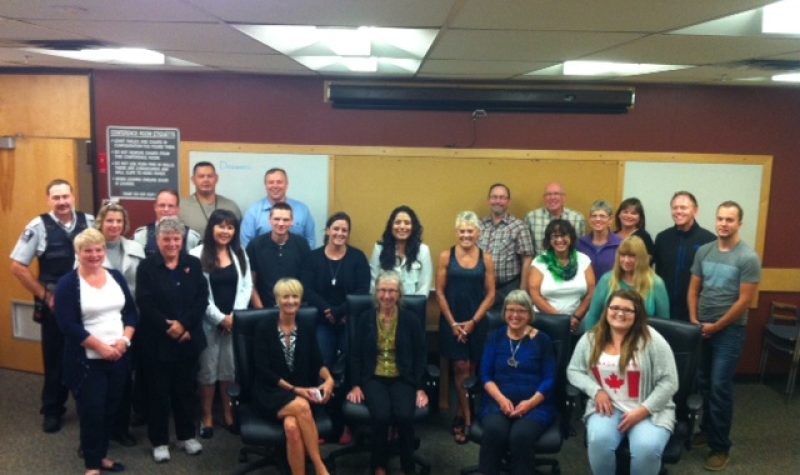The Community Policing arm of the Prince George RCMP is seeking to expand interest and awareness about its restorative justice program among RCMP officers, community partners and the public.
In 2020, the Prince George RCMP responded to more than 46,000 files but only a handful of them, a maximum of 60, make their way to the restorative justice department each year. Linda Parker, community policing coordinator, says it is an “ongoing struggle to encourage more file referrals” from RCMP members.

Linda Parker has been the RCMP's Community Policing Coordinator for over 15 years. Photo courtesy of Linda Parker.
With an extremely small budget, and being reliant on a team of committed volunteers, Parker is cautious of expanding the workload too quickly due to the limited resources at her disposal.
“It’s a lot of work to process a file,” she says, as the collaboration requires coordinating multiple schedules, accommodating different priorities, and committing to ensure compliance with the agreements set in the restorative justice process through follow up appointments.
But the pay off for taxpayers of expanding restorative practice could be significant. In 2008, the Department of Justice Canada reported the “costs pertaining to the Canadian criminal justice system… amounted to about $15 billion for policing, court, prosecution, legal aid, correctional services and mental health review boards” with about a third of that amount spent on corrections and the courts.
In 2020, the City of Prince George spent $27 million on the RCMP, the biggest single line item at 24.5 per cent of the overall budget, according to the Citizen Budget 2021 survey. Restorative justice provides a potential alternative to these sizable costs.
The positive impact on the individuals involved, both victims and offenders, is often tangible. With a focus on inclusion of all parties and addressing root causes of anti-social behaviour, Parker calls it “an ideal method of dealing with conflict or criminal incidence." For many, once they are brought in to a negative relationship with the criminal justice system, it can be hard to get out.
“Ideally recidivism is reduced through efficient restorative justice," says Parker, adding that first offenders must find their way to the services.
Parker and her team of volunteers, in partnership with the Prince George Urban Aboriginal Justice Society, are always looking for “creative ways” of promoting restorative practice in the community.
Listen to the interview with CFUR-FM:


